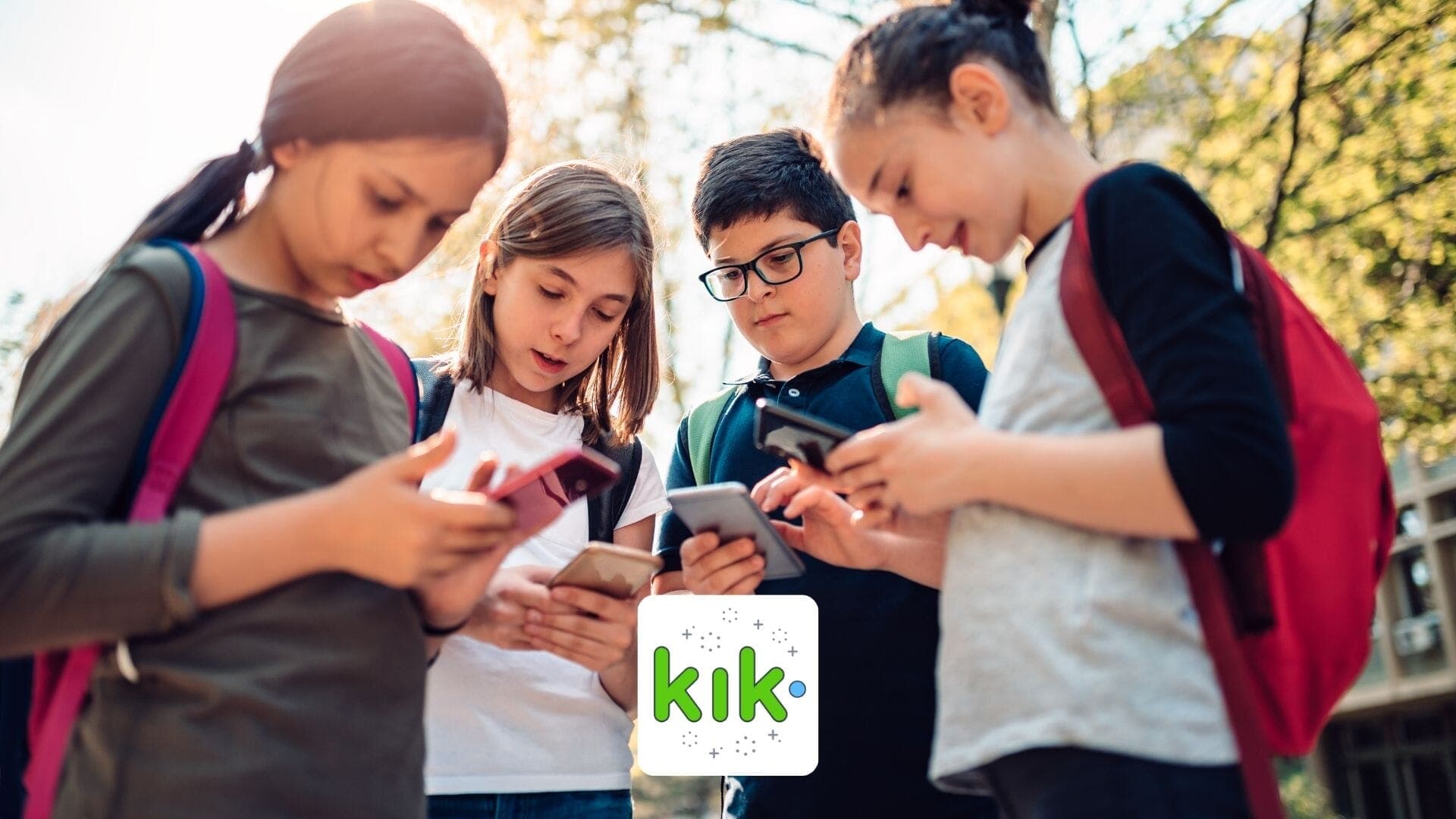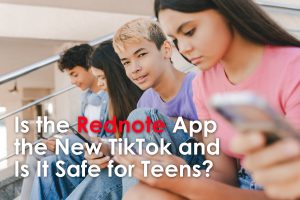Kik Messenger is a popular messaging app, especially among teens and young adults, offering a variety of ways to connect with others. However, it also comes with significant safety concerns that parents need to be aware of. Here’s a closer look at what Kik offers and the potential risks involved.
Kik Messenger’s Key Features
Kik Messenger allows users to chat with friends and strangers alike, using only an email address to sign up—no phone number required. This anonymity can be appealing, but it also opens the door to interactions that may not always be safe. Here are some of the key features that attract users to Kik:
- Free Messaging and Multimedia Sharing: Kik users can send text messages, images, videos, and GIFs to each other, making conversations more dynamic and engaging.
- Public Groups and Chat Rooms: Kik allows users to join public groups based on shared interests, such as hobbies, favorite TV shows, or music genres. While this can be fun, it also means users can interact with people they don’t know.
- Chatbots and Mini-Games: Kik includes various chatbots that can provide entertainment, such as trivia games or quizzes. These bots add an extra layer of interaction, making Kik more than just a messaging app.
- Customizable Profiles: Users can personalize their Kik profiles with profile pictures, status updates, and links to other social media accounts. This feature lets users express themselves, but it can also lead to oversharing personal information.
- Anonymous Chatting: One of Kik’s most distinct features is that it allows users to chat anonymously, which can be appealing for teens but also presents significant safety risks.
What Should Parents Look Out For With This App?
While Kik offers a range of features that make it a fun and engaging app, there are several critical concerns that parents should be aware of:
-
Potential Exposure to Inappropriate Content:
-
-
Risk: Kik’s public groups and chat rooms lack adequate moderation, exposing users—especially younger ones—to explicit content such as pornography, violent images, and hate speech. Despite guidelines that groups should maintain a PG-13 rating, it’s easy for users to find and join groups that share harmful content.
-
-
Risk of Predation:
-
-
Risk: Kik’s anonymity makes it easier for predators to create fake profiles and approach young users. They can join groups or start private chats under the guise of shared interests, making it easy to groom vulnerable teens. Kik has been linked to numerous cases involving predation, child exploitation, and other criminal activities.
-
-
Lack of Privacy:
-
-
Risk: By default, Kik allows anyone to send a message to your child unless privacy settings are manually adjusted. Additionally, the app’s “Use Phone Contacts” feature means that anyone in your teen’s contact list who uses Kik can find them and send them messages, increasing the risk of unwanted interactions.
-
-
No Parental Controls:
-
-
Risk: Kik does not offer built-in parental controls, making it challenging for parents to monitor their child’s activity on the app. This lack of oversight can leave children vulnerable to the app’s inherent risks, with little recourse for parents.
-
-
In-App Purchases:
-
-
Risk: While Kik itself is free, it offers in-app purchases for various stickers, emojis, and games. These microtransactions can add up, and without parental supervision, your child might spend more time and money on the app than you realize.
-
Recommendations
Given the significant risks associated with Kik Messenger, it’s recommended that parents carefully consider if it’s an appropriate app for their children. If your teen insists on using Kik, here are a few steps you can take:
-
Educate Your Child: Ensure your teen understands the risks of sharing personal information and interacting with strangers online. Discuss the importance of privacy and how to adjust settings to limit who can contact them.
-
To reinforce these lessons, consider enrolling them in a Digital Citizenship course. This program is designed for students in 1st through 3rd grade and 4th through 8th grade, equipping them with the skills they need to navigate the digital world safely and responsibly. The course offers structured learning that complements the discussions you have at home, helping your child understand and practice online safety in a practical, age-appropriate context.
-
Monitor Usage: Regularly check your child’s app usage and conversations. Although Kik lacks built-in parental controls, staying involved in your child’s online activities is crucial.
-
Explore Safer Alternatives: Consider encouraging your teen to use safer messaging apps that offer more robust parental controls and privacy features, such as Messenger Kids or GroupMe.
-
Use OurPact for Better Control: An excellent tool for managing your child’s screen time and ensuring their online safety is OurPact. This app allows you to set up schedules that block screen time during school hours or bedtime, ensuring your kids stay focused when they need to. With OurPact, you can decide which apps your kids can use, instantly block devices to prevent distractions, and reward good behavior with extra screen time. The app also features a Family Locator to help you keep track of your kids’ whereabouts and sends alerts when they arrive at or leave certain places. Additionally, OurPact blocks adult content and encourages healthy screen habits with set time allowances, and you can monitor your kids’ online activities by taking remote screenshots.
Conclusion
Kik Messenger may offer a fun and dynamic way for teens to chat, but it also comes with significant risks that parents need to be aware of. The lack of privacy, potential exposure to harmful content, and the absence of parental controls make it a less-than-ideal choice for younger users. By staying informed and proactive, you can help your child navigate the digital world more safely.
Remember, while Kik might seem like just another messaging app, understanding its potential dangers is key to ensuring your child’s online safety.





